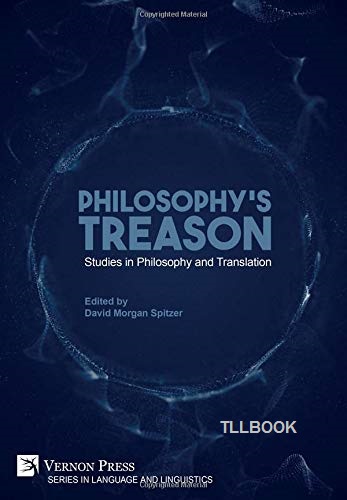Philosophy’s Treason: Studies in Philosophy and Translation
E-Book: 217 English Pages
Price: 3.000 Toman
Download: Philosophy’s Treason: Studies in Philosophy and Translation (
راهنمای سریع دانلود، کلیک کنید .

Philosophy’s Treason: Studies in Philosophy and Translation gathers contributions from an international group of scholars at different stages of their careers, bringing together diverse perspectives on translation and philosophy. The volume’s six chapters primarily look towards translation from philosophic perspectives, often taking up issues central to Translation Studies and pursuing them along philosophic lines. By way of historical, logical, and personal reflection, several chapters address broad topics of translation, such as the entanglements of culture, ideology, politics, and history in the translation of philosophic works, the position of Translation Studies within current academic humanities, untranslatability within philosophic texts, and the ways philosophic reflection can enrich thinking on translation. Two more narrowly focused chapters work closely on specific philosophers and their texts to identify important implications for translation in philosophy. In a final “critical postscript” the volume takes a reflexive turn as its own chapters provide starting points for thinking about philosophy and translation in terms of periperformativity.
From philosophers critically engaged with translation this volume offers distinct perspectives on a growing field of research on the interdisciplinarity and relationality of Translation Studies and Philosophy. Ranging from historical reflections on the overlap of translation and philosophy to philosophic investigation of questions central to translation to close-readings of translation within important philosophic texts, Philosophy’s Treason serves as a useful guide and model to educators in Translation Studies wishing to illustrate a variety of approaches to topics related to philosophy and translation.
Review
“Philosophy’s Treason” not only eloquently shows how translation works within Western philosophical discourse, but it does so while opening a much-needed dialogue with translation studies as an academic discipline. The poststructural thus connects with both the empirical and the experiential, drawing on the reason of those who have actually translated philosophy.
Prof. Anthony Pym
The University of Melbourne